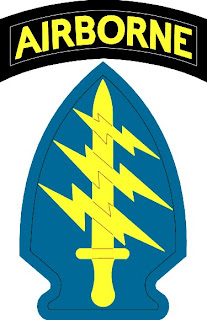Democracy and Stabilty-- Animals of a Different Stripe
The key question for our country now is, what is our goal in the Middle East? Is it (1) democracy, or (2) stability. These are not the same animal. Possibly, it is (3) oil. Of these goals, 1 & 2 are political, and 3 is economic. The three are not interchangeable and are self-exclusive.
I will discuss the politics of 1 & 2 through a macro lens. Since 1914 the western allies fought two World Wars and participated in the Cold War with a clear political vision shared generally by the U.S., France, Great Britain, Canada, Australia, and the rest of Great Britain's and France's former colonies.
This policy was formalized after WWI with the arbitrary breakup of the former Ottoman/Turkish empire in the Midle East and with the creation of friendly western-supported regimes throughout the region. U.S. and western policy in the region, until the Iraqi invasion of 2002, was based upon achieving stability, not democracy. Stabilty was equated with maintaining the flow of oil to our societies. Realpolitik guided western presence in the area for most of the last century.
France and Great Britain had and have economic interests (oil) that dictated long-term policy in the region. The partitioning enacted by the Balfour Agreements largely ignored local realities, like religious and ethnic delineations, and it is that artificial imposition of affiliation that is playing out in the area today.
Sounds a lot like our current policy in Iraq and Afghanistan, though our current Secretary of State would probably take issue with that asssessment. Ms. Rice would say that we're introducing democracy, while I'd say we're imposing the Balfour on the region once again, ignoring the geopolitical issues roiling in the region.
Since 1921 the Middle East has been a quagmire. Remember that area's population supported Hitler and his totalitarianism. The Imams were sympathetic to and voiced support for Nazism, a policy which they admired. This support caused Hitler to engage in the folly of sending his Africa Corps to a theatre of operations that was a sideline, other than his need for oil.
He was unsuccessful due to the U.S. and Great Britain's military power, which kept the area suppressed until about 1979. This suppression could not be viewed in any democratic terms.
The ouster of the Shah was an indiginous upwelling that repudiated Balfour and western puppets. Saddam's regime goes back farther, but it's the same game. Ditto Libya, Syria and Lebanon. The friendlies in the area are only so because of oil revenues; now that friendship is questionable what with burgeoning oil markets in India, China, Japan and Korea. U.S. dollar diplomacy is no longer relevant, or at least, not essential. The emergence of Shia dominance in this trans-national region is a continuation of the trend toward western repudiation in the region.
U.S. policy preaches democracy, unrealistically expecting political fictions like Iraq to become viable democratic nations. It is fairy-tale thinking, as democracy simply isn't in the mix for a bunch of warring tribesman who don't like each other very much and don't wish to cohere, and like the West as embodied by the U.S. even less, epsecially now that the U.S. is seen as an occupying power.
Lasting nation-states are not formed by external powers. They are created by an upwelling from within the region. Since the Bush presidency is the result of a faulty election, it's easy to understand his belief in the credibilty of phoney elections.
The events in Iraq since the invasion illustrate that, if the West is to continue to be a presence in this region, stability was a more realistic policy for the region.
I will discuss the politics of 1 & 2 through a macro lens. Since 1914 the western allies fought two World Wars and participated in the Cold War with a clear political vision shared generally by the U.S., France, Great Britain, Canada, Australia, and the rest of Great Britain's and France's former colonies.
This policy was formalized after WWI with the arbitrary breakup of the former Ottoman/Turkish empire in the Midle East and with the creation of friendly western-supported regimes throughout the region. U.S. and western policy in the region, until the Iraqi invasion of 2002, was based upon achieving stability, not democracy. Stabilty was equated with maintaining the flow of oil to our societies. Realpolitik guided western presence in the area for most of the last century.
France and Great Britain had and have economic interests (oil) that dictated long-term policy in the region. The partitioning enacted by the Balfour Agreements largely ignored local realities, like religious and ethnic delineations, and it is that artificial imposition of affiliation that is playing out in the area today.
Sounds a lot like our current policy in Iraq and Afghanistan, though our current Secretary of State would probably take issue with that asssessment. Ms. Rice would say that we're introducing democracy, while I'd say we're imposing the Balfour on the region once again, ignoring the geopolitical issues roiling in the region.
Since 1921 the Middle East has been a quagmire. Remember that area's population supported Hitler and his totalitarianism. The Imams were sympathetic to and voiced support for Nazism, a policy which they admired. This support caused Hitler to engage in the folly of sending his Africa Corps to a theatre of operations that was a sideline, other than his need for oil.
He was unsuccessful due to the U.S. and Great Britain's military power, which kept the area suppressed until about 1979. This suppression could not be viewed in any democratic terms.
The ouster of the Shah was an indiginous upwelling that repudiated Balfour and western puppets. Saddam's regime goes back farther, but it's the same game. Ditto Libya, Syria and Lebanon. The friendlies in the area are only so because of oil revenues; now that friendship is questionable what with burgeoning oil markets in India, China, Japan and Korea. U.S. dollar diplomacy is no longer relevant, or at least, not essential. The emergence of Shia dominance in this trans-national region is a continuation of the trend toward western repudiation in the region.
U.S. policy preaches democracy, unrealistically expecting political fictions like Iraq to become viable democratic nations. It is fairy-tale thinking, as democracy simply isn't in the mix for a bunch of warring tribesman who don't like each other very much and don't wish to cohere, and like the West as embodied by the U.S. even less, epsecially now that the U.S. is seen as an occupying power.
Lasting nation-states are not formed by external powers. They are created by an upwelling from within the region. Since the Bush presidency is the result of a faulty election, it's easy to understand his belief in the credibilty of phoney elections.
The events in Iraq since the invasion illustrate that, if the West is to continue to be a presence in this region, stability was a more realistic policy for the region.











0 Comments:
Post a Comment
<< Home